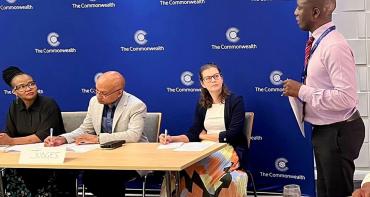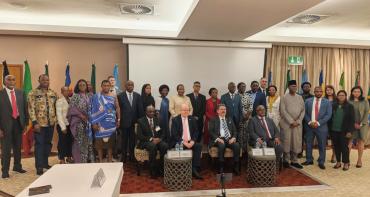The elections were generally well organised, but fell short of meeting Swaziland’s key international obligations for democratic elections

Commonwealth Secretary-General Kamalesh Sharma today released the Final Report of the Commonwealth Observer Mission (COM) to the 20 September national elections in Swaziland. The COM was led by Dr Bakili Muluzi, Former President of Malawi.
Commenting on the report, Mr Sharma said: “The elections held on 20 September were Swaziland’s second national elections under the 2005 Constitution and a new electoral legal framework. These elections were an important moment for Swaziland and offered a critical opportunity for the country and its key stakeholders to take stock of progress made in the democratic process and to map the way forward. I wish to commend the Elections and Boundaries Commission (EBC) and the people of Swaziland on a well-managed, transparent and largely peaceful process.”
The Secretary-General, however, underscored the concerns raised by the observers in their report, especially their strongly held view that “there is considerable room for improving the democratic system, in light of Swaziland’s international obligations.” He further noted the observers’ assessment that they “… cannot conclude that the entire process was credible, if measured against those obligations.”
The Report makes a number of recommendations for the Government, EBC and other stakeholders to consider with a view to improving future electoral processes. Notably, it recommends that the Constitution be revisited, ideally “through a fully inclusive, consultative process with all Swazi political organisations and civil society to harmonise provisions which are in conflict. The aim is to ensure that Swaziland’s commitment to political pluralism is unequivocal.”
Mr Sharma concluded: “The Commonwealth will continue to work closely with Swaziland to strengthen further the country’s democratic processes and institutions. Our shared commitment to democracy, development, and respect for diversity, as set out in the Commonwealth Charter, together with political will and leadership, can help us travel forward together on the journey towards responsive and accountable governance with ever more inclusive and equitable participation by all.”



